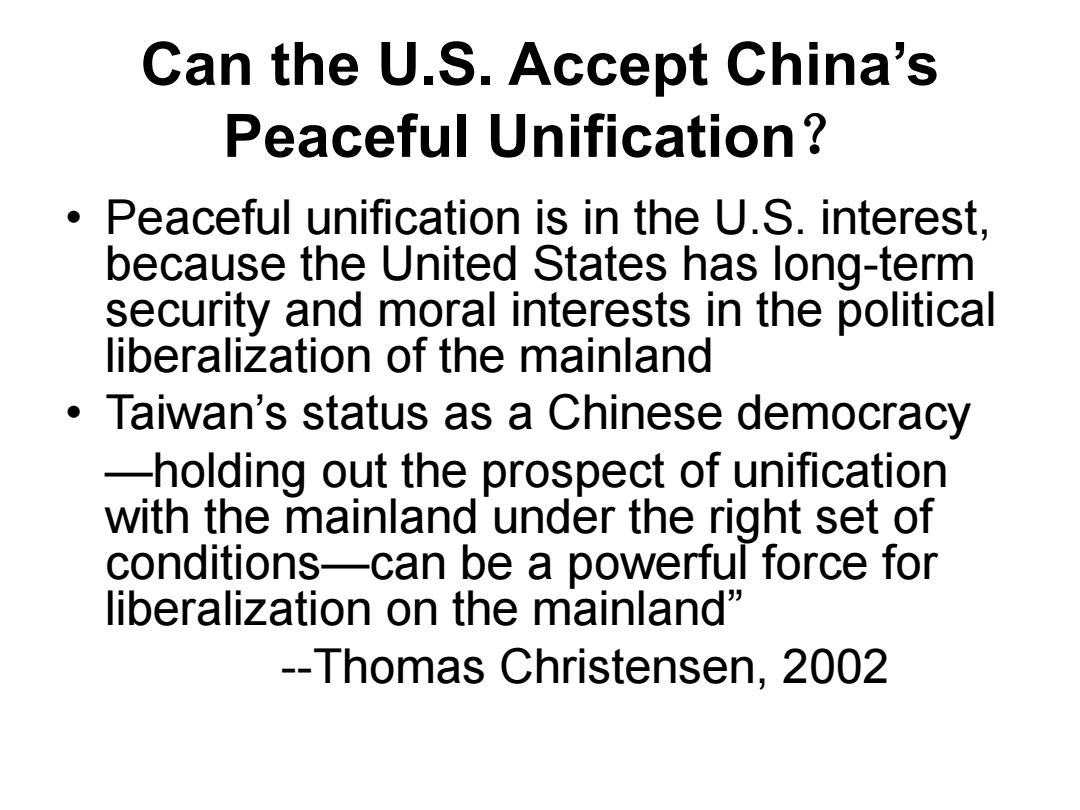
Can the U.S.Accept China's Peaceful Unification? Peaceful unification is in the U.S.interest. because the United States has long-term security and moral interests in the political liberalization of the mainland Taiwan's status as a Chinese democracy -holding out the prospect of unification with the mainland under the right set of conditions-can be a powerful force for liberalization on the mainland" --Thomas Christensen,2002
Can the U.S. Accept China’s Peaceful Unification? • Peaceful unification is in the U.S. interest, because the United States has long-term security and moral interests in the political liberalization of the mainland • Taiwan’s status as a Chinese democracy —holding out the prospect of unification with the mainland under the right set of conditions—can be a powerful force for liberalization on the mainland” --Thomas Christensen, 2002
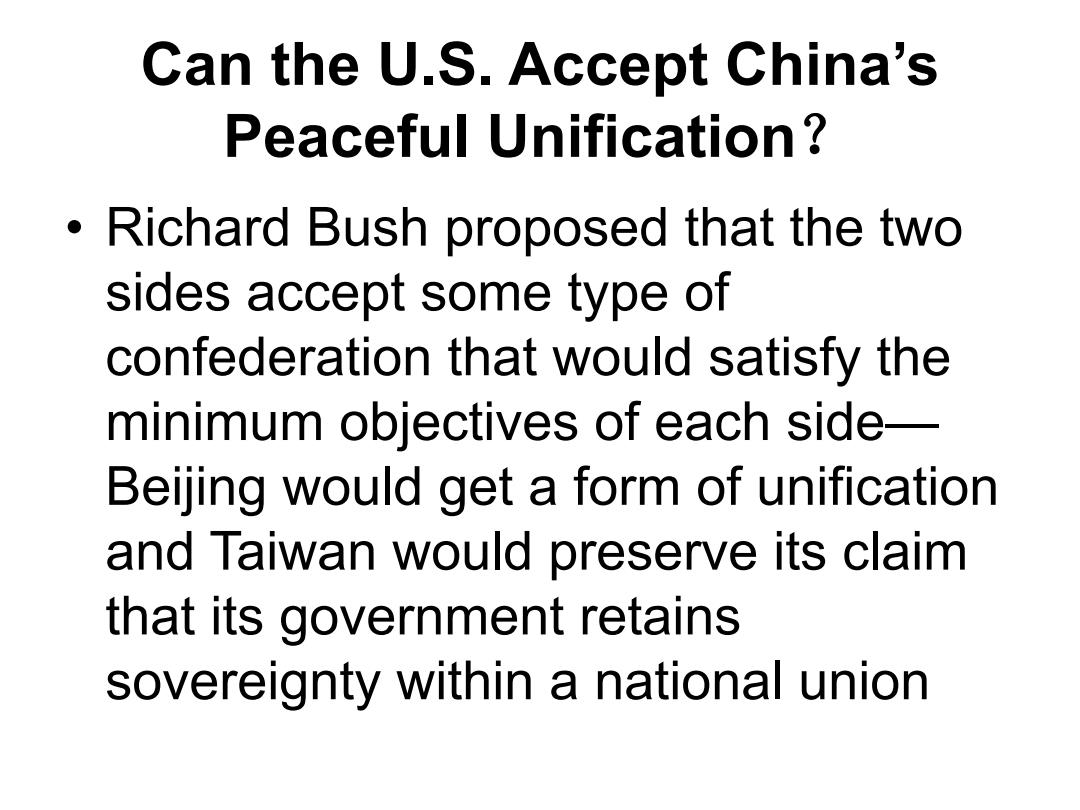
Can the U.S.Accept China's Peaceful Unification Richard Bush proposed that the two sides accept some type of confederation that would satisfy the minimum objectives of each side- Beijing would get a form of unification and Taiwan would preserve its claim that its government retains sovereignty within a national union
Can the U.S. Accept China’s Peaceful Unification? • Richard Bush proposed that the two sides accept some type of confederation that would satisfy the minimum objectives of each side— Beijing would get a form of unification and Taiwan would preserve its claim that its government retains sovereignty within a national union
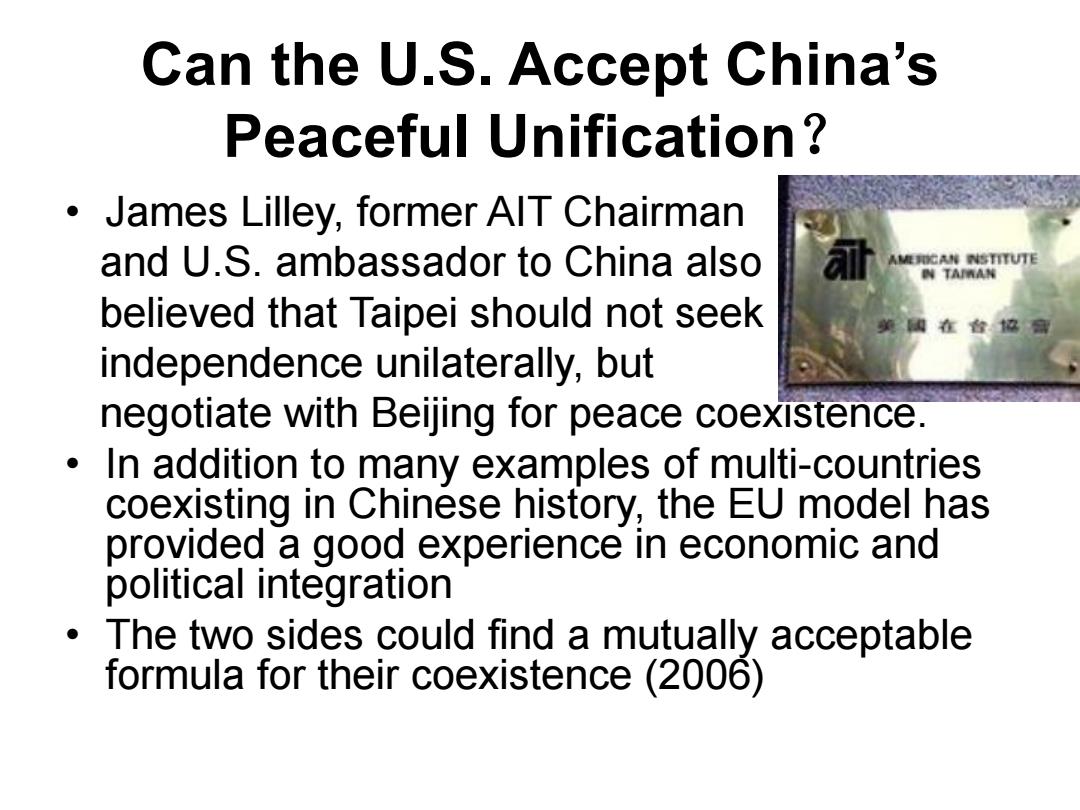
Can the U.S.Accept China's Peaceful Unification James Lilley,former AlT Chairman and U.S.ambassador to China also MCA转NSTITUTE TAA转 believed that Taipei should not seek independence unilaterally,but negotiate with Beijing for peace coexistence. In addition to many examples of multi-countries coexisting in Chinese history,the EU model has provided a good experience in economic and political integration The two sides could find a mutually acceptable formula for their coexistence (2006)
Can the U.S. Accept China’s Peaceful Unification? • James Lilley, former AIT Chairman and U.S. ambassador to China also believed that Taipei should not seek independence unilaterally, but negotiate with Beijing for peace coexistence. • In addition to many examples of multi-countries coexisting in Chinese history, the EU model has provided a good experience in economic and political integration • The two sides could find a mutually acceptable formula for their coexistence (2006)
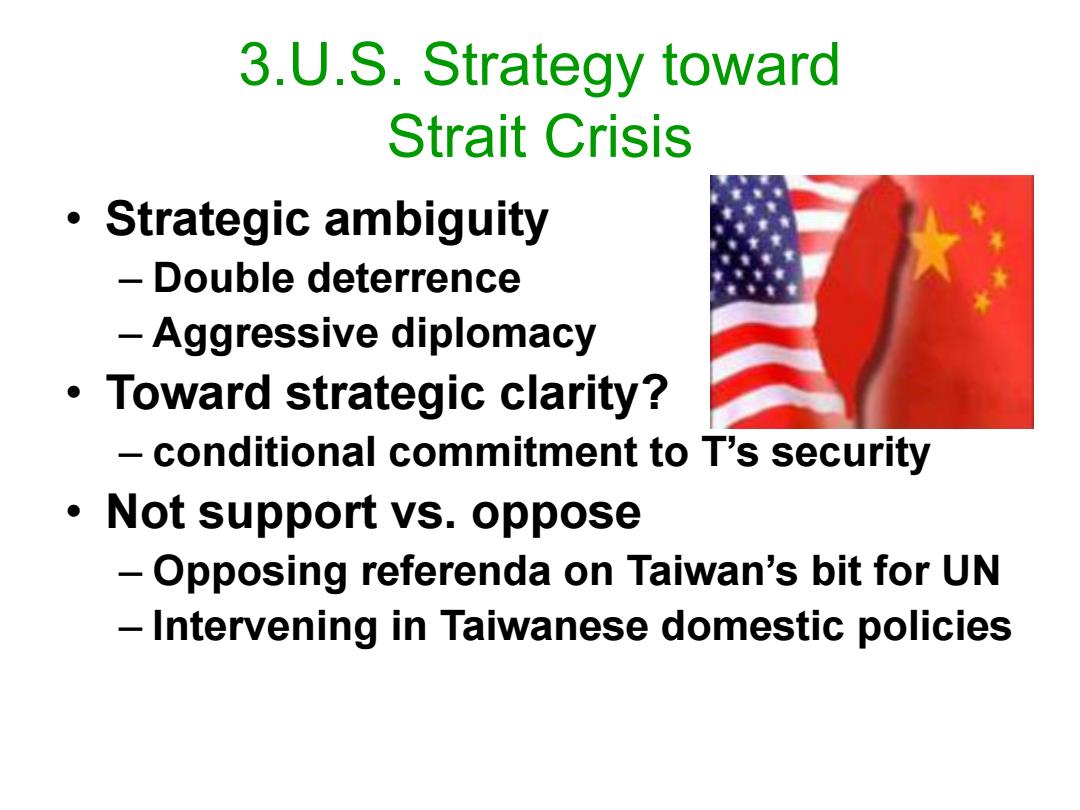
3.U.S.Strategy toward Strait Crisis 。Strategic ambiguity Double deterrence -Aggressive diplomacy Toward strategic clarity? conditional commitment to T's security Not support vs.oppose -Opposing referenda on Taiwan's bit for UN -Intervening in Taiwanese domestic policies
3.U.S. Strategy toward Strait Crisis • Strategic ambiguity – Double deterrence – Aggressive diplomacy • Toward strategic clarity? – conditional commitment to T’s security • Not support vs. oppose – Opposing referenda on Taiwan’s bit for UN – Intervening in Taiwanese domestic policies
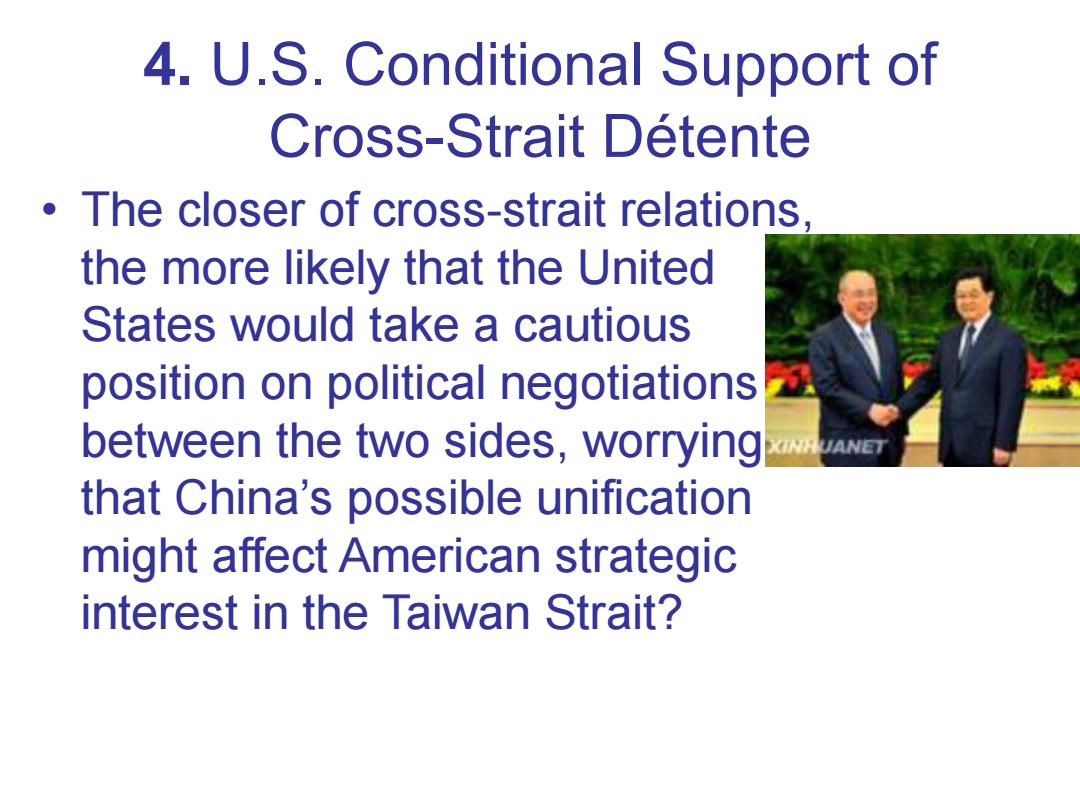
4.U.S.Conditional Support of Cross-Strait Detente The closer of cross-strait relations. the more likely that the United States would take a cautious position on political negotiations between the two sides,worrying that China's possible unification might affect American strategic interest in the Taiwan Strait?
4. U.S. Conditional Support of Cross-Strait Détente • The closer of cross-strait relations, the more likely that the United States would take a cautious position on political negotiations between the two sides, worrying that China’s possible unification might affect American strategic interest in the Taiwan Strait?